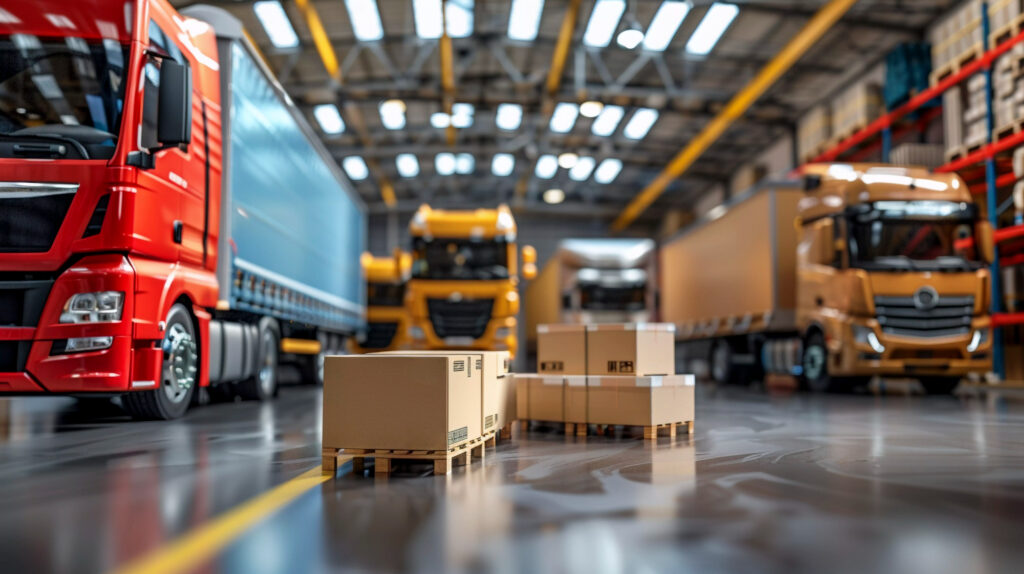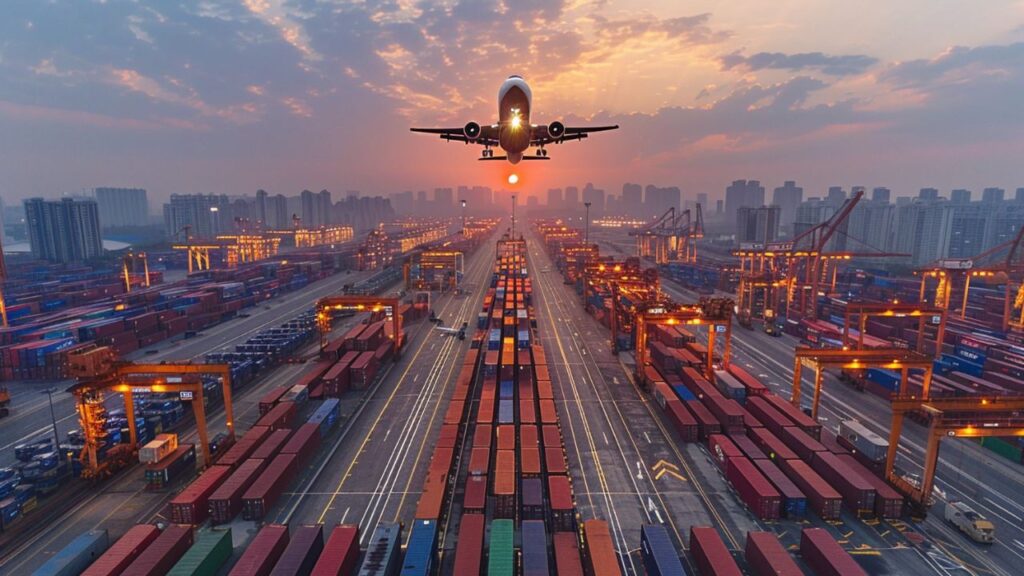Introduction
In the world of healthcare, the swift and secure transport of medical materials can be a matter of life and death. Healthcare courier services play a critical role in ensuring that essential medical items, such as medications, laboratory specimens, and even organs for transplant, reach their destinations promptly and safely. This article explores the twin pillars of healthcare courier services—speed and safety—and how they are crucial in maintaining the efficacy and reliability of medical logistics.
The Need for Speed in Healthcare Courier Services
In healthcare logistics, time is often of the essence. The rapid delivery of medical items can significantly impact patient outcomes, making speed an indispensable factor in courier services.
Time-Sensitive Deliveries

Healthcare providers often require immediate access to medical supplies and specimens to diagnose and treat patients effectively. Delays in delivering these items can lead to serious health repercussions. For instance, delayed laboratory results can postpone critical medical decisions, and late medication deliveries can affect patient treatment schedules.
Impact on Patient Care
Fast courier services enhance patient care by ensuring timely delivery of essential items. For example, delivering chemotherapy drugs on schedule is vital for maintaining the efficacy of treatment plans. Similarly, timely delivery of blood and organs can be a deciding factor in successful surgeries and transplants.
Examples of Time-Critical Deliveries
- Laboratory Specimens: Samples such as blood, urine, and biopsies need to be transported quickly to labs for analysis.
- Prescription Medications: Patients rely on timely delivery of prescriptions, particularly for chronic and life-threatening conditions.
- Organ and Blood Transport: The transportation of organs and blood for transplant is one of the most time-sensitive services in healthcare logistics.
Technology Enhancing Speed
The advent of advanced technology has revolutionized the speed at which healthcare couriers operate.
GPS Tracking

Real-time GPS tracking allows courier services to monitor their vehicles and ensure the fastest routes are taken. This technology reduces delivery times by avoiding traffic and other delays.
Automated Dispatch Systems
These systems optimize delivery schedules by assigning the closest and most appropriate courier to a job, ensuring efficient and rapid dispatch.
Real-Time Updates
Providing real-time updates to clients about the status of their deliveries enhances transparency and allows healthcare providers to plan accordingly.
Ensuring Safety in Healthcare Courier Services
While speed is essential, the safety of the transported items is equally critical. Maintaining the integrity of medical materials is paramount to ensure they are effective and reliable upon delivery.
Regulatory Compliance

Healthcare couriers must comply with strict regulations to ensure the safety of medical items. These regulations cover everything from handling hazardous materials to maintaining proper temperatures during transport.
Handling Hazardous Materials
Couriers often transport hazardous materials, including infectious specimens and radioactive substances. Proper training and adherence to safety protocols are necessary to handle these materials safely.
Temperature Control
Many medical items, such as vaccines and certain medications, require strict temperature control to remain effective. Healthcare couriers use specialized equipment to maintain these conditions during transport.
Training and Certification
Proper training and certification of courier personnel are fundamental to ensuring safety in healthcare logistics.
Professional Standards
Couriers are trained to meet professional standards in handling, packaging, and transporting medical items. This training includes understanding the specifics of various medical materials and the precautions needed to transport them safely.
Continuous Education
Ongoing education ensures that couriers stay updated on the latest safety protocols and technological advancements, maintaining a high standard of service.
Packaging and Labeling
Correct packaging and labeling are crucial for the safe transport of medical materials.
Secure Packaging Methods
Medical items must be packaged securely to prevent damage or contamination during transit. This includes using tamper-proof containers and appropriate cushioning materials.
Importance of Proper Labeling
Proper labeling ensures that medical items are easily identifiable and handled correctly. Labels provide essential information, such as handling instructions and destination details, which help in maintaining the integrity of the items.
The Role of Technology in Safety
Technological advancements also play a significant role in enhancing the safety of healthcare courier services.
Monitoring Systems
Advanced monitoring systems track the conditions of transported items, such as temperature and humidity levels, ensuring they remain within safe limits.
Secure Communication Channels
Secure communication channels allow couriers to relay critical information to healthcare providers without the risk of data breaches, ensuring the confidentiality and integrity of medical information.
Real-World Examples
Case Study: Successful Organ Transport
A recent case involved the transport of a heart for a transplant surgery. The courier service used real-time GPS tracking and temperature-controlled containers to ensure the organ arrived in optimal condition, contributing to a successful transplant.
Case Study: Safe Delivery of Chemotherapy Drugs
In another instance, a healthcare courier successfully delivered chemotherapy drugs within a strict timeframe, maintaining the required temperature throughout the journey. This timely delivery allowed the patient to begin treatment without any delays.
Challenges in Balancing Speed and Safety
Balancing speed and safety can be challenging for healthcare couriers. However, there are strategies to overcome these obstacles.
Common Obstacles Faced by Healthcare Couriers
- Traffic congestion and route changes
- Handling and transporting hazardous materials
- Maintaining temperature control over long distances
Strategies to Overcome These Challenges
- Utilizing advanced GPS and route optimization technology
- Providing rigorous training to couriers
- Investing in high-quality, temperature-controlled transport equipment
Future Trends in Healthcare Courier Services
The future of healthcare courier services looks promising, with several innovations on the horizon.
Innovations on the Horizon
- Drones: The use of drones for medical deliveries can significantly reduce delivery times and overcome traffic-related delays.
- Robotics: Robotics can enhance the precision and efficiency of medical item handling and packaging.
The Role of AI and Machine Learning
AI and machine learning can optimize route planning, predict potential delays, and enhance the overall efficiency of courier services. These technologies can also improve safety by monitoring and analyzing data in real-time to prevent potential issues.
Conclusion
Speed and safety are the twin pillars that uphold the efficacy of healthcare courier services. The rapid and secure transport of medical materials is crucial for patient care and the overall healthcare system. As technology continues to evolve, healthcare courier services will become even more efficient, ensuring that the right medical items reach the right place at the right time, safely and securely.
FAQs
Why is speed crucial in healthcare courier services?
Speed is essential because timely delivery of medical items can significantly impact patient outcomes, such as ensuring prompt treatment and diagnosis.
How do healthcare couriers ensure the safety of medical items?
They ensure safety through regulatory compliance, proper training, secure packaging, and using advanced monitoring systems to maintain item integrity.
What technologies are most important for healthcare courier services?
GPS tracking, automated dispatch systems, real-time updates, and temperature control technologies are vital for enhancing speed and safety.
What challenges do healthcare couriers face?
Challenges include traffic congestion, handling hazardous materials, and maintaining temperature control over long distances.
What future trends will impact healthcare courier services?
Drones, robotics, AI, and machine learning are expected to revolutionize healthcare courier services, making them faster and safer.



